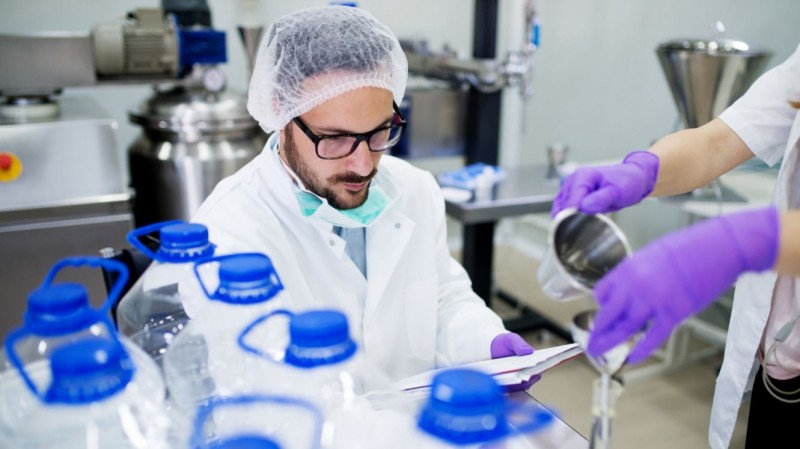
In the ever-evolving landscape of modern healthcare, medical laboratory technicians play a crucial role in ensuring accurate diagnoses and effective treatment plans for patients. These skilled professionals work behind the scenes in laboratories, analyzing samples, conducting tests, and generating vital information that assists doctors in making informed decisions. This article explores the essential responsibilities, qualifications, and future prospects of medical laboratory technicians.
Understanding the Role of a Medical Laboratory Technician
1. What is a Medical Laboratory Technician (MLT)?
Medical Laboratory Technicians, commonly known as MLTs, are trained healthcare professionals responsible for performing laboratory tests on various biological samples, such as blood, urine, tissues, and other bodily fluids. Their work is fundamental to detecting diseases, monitoring patient health, and aiding in the prevention and treatment of illnesses.
2. Importance of MLTs in Healthcare
MLTs play a pivotal role in patient care as their test results provide crucial information that impacts medical decisions. Physicians rely on accurate and timely laboratory data to diagnose medical conditions and develop personalized treatment plans for their patients.
Educational and Professional Journey
3. Educational Requirements for MLTs
Becoming a medical laboratory technician typically requires an associate's degree or a post-secondary diploma in medical laboratory technology from an accredited institution. The comprehensive curriculum includes courses in chemistry, biology, hematology, microbiology, and laboratory procedures.
4. Certification and Licensing
Upon completing their education, aspiring MLTs need to obtain certification from recognized bodies such as the American Society for Clinical Pathology (ASCP) or the National Accrediting Agency for Clinical Laboratory Sciences (NAACLS). Additionally, some states may require licensing to practice as an MLT.
The Duties of a Medical Laboratory Technician
5. Sample Collection and Preparation
MLTs are responsible for collecting and preparing patient samples for analysis. Proper collection techniques and attention to detail are essential to avoid contamination and ensure accurate results.
6. Conducting Laboratory Tests
Once the samples are prepared, MLTs use sophisticated equipment to conduct a wide array of tests, including blood tests, bacterial cultures, chemical analyses, and more. They follow strict protocols to ensure precision and reliability.
7. Analyzing and Recording Data
MLTs meticulously analyze test results, interpret findings, and record data in computer systems or laboratory databases. This information becomes part of a patient's medical record and directly impacts their diagnosis and treatment.
8. Quality Control and Assurance
Ensuring the accuracy and reliability of laboratory results is paramount. MLTs perform routine quality control checks and maintenance on laboratory equipment to uphold high standards.
The Growing Demand for Medical Laboratory Technicians
9. Healthcare Industry Growth
The healthcare industry continues to expand rapidly, creating a surge in demand for skilled medical professionals like MLTs. As the population grows and ages, there is an increased need for diagnostic services and medical testing.
10. Advancements in Medical Technology
Technological advancements in laboratory equipment and diagnostic tools have elevated the precision and efficiency of medical testing. MLTs must adapt to these changes and stay updated with the latest practices.
Traits of a Successful Medical Laboratory Technician
11. Attention to Detail
Given the critical nature of their work, MLTs must have exceptional attention to detail to prevent errors in sample handling and analysis.
12. Analytical Skills
Interpreting complex test results requires strong analytical skills to identify patterns and anomalies that may indicate underlying health issues.
13. Communication Skills
MLTs work as part of a broader healthcare team, and effective communication ensures seamless coordination and understanding of patient needs.
14. Adaptability and Resilience
The medical field is constantly evolving, and MLTs must be adaptable and resilient in the face of challenges and changes.
Medical Laboratory Technicians are unsung heroes of the healthcare industry, contributing significantly to patient well-being. Their expertise in conducting tests and analyzing results aids in accurate diagnoses and personalized treatment plans. With a promising career outlook and a vital role in healthcare, becoming an MLT offers a fulfilling and rewarding profession.
IT Support Technician: A Guide to a Rewarding Career in Technology
Rozgar Mela: PM to distribute over 70,000 appointment letters
Before taking lip treatment, know the important things related to lip jobs and lip surgery